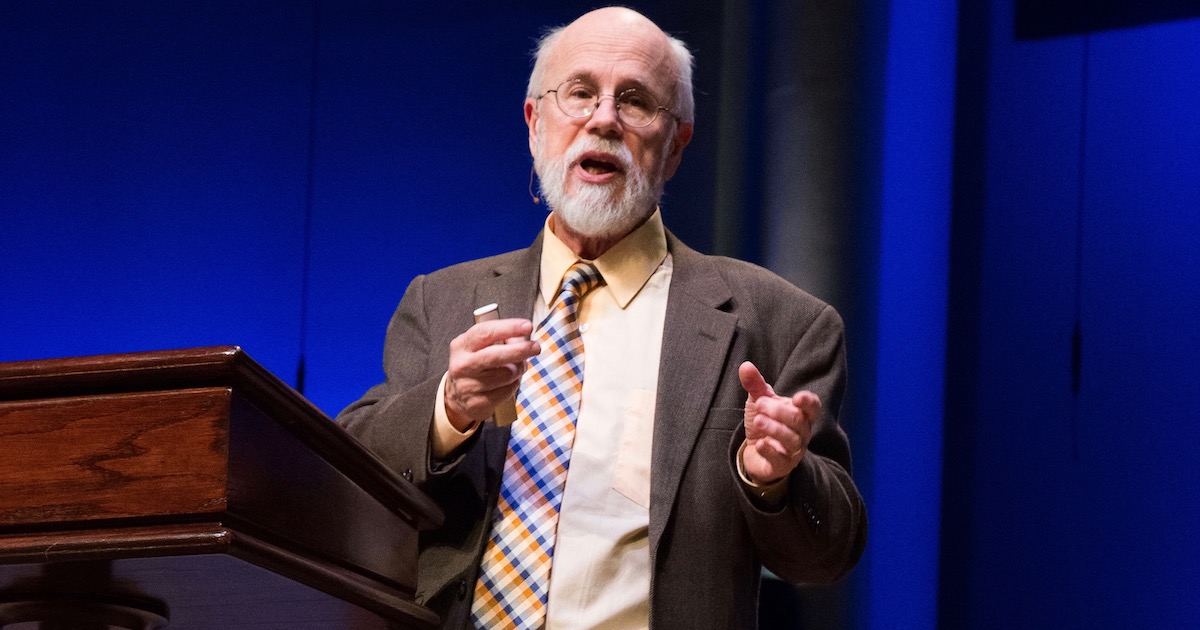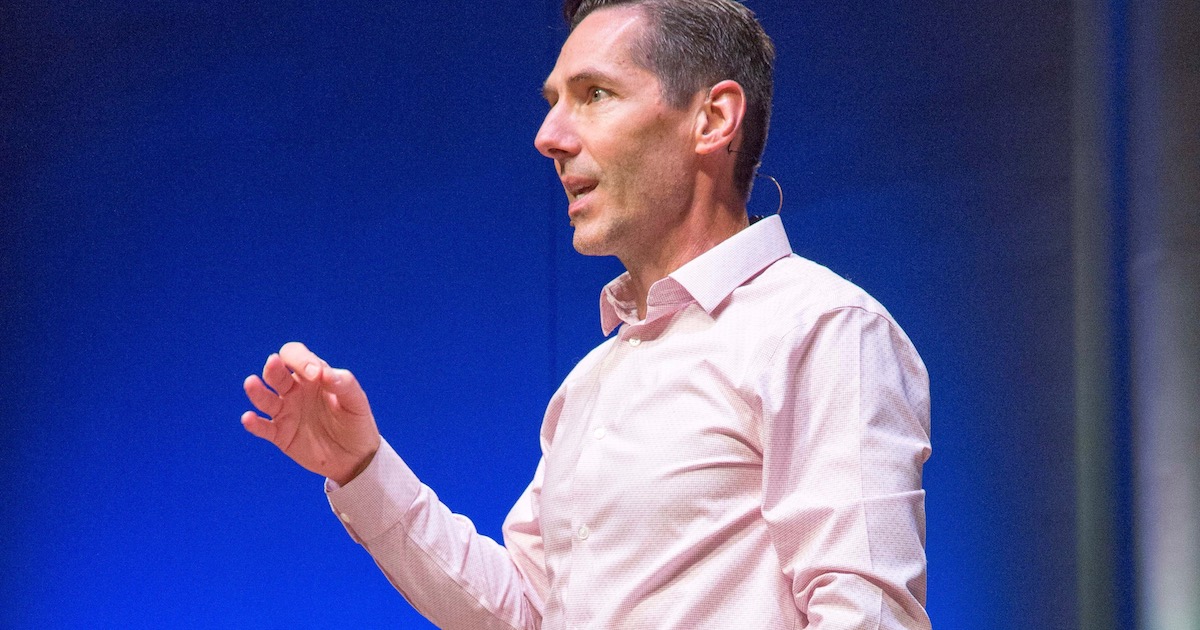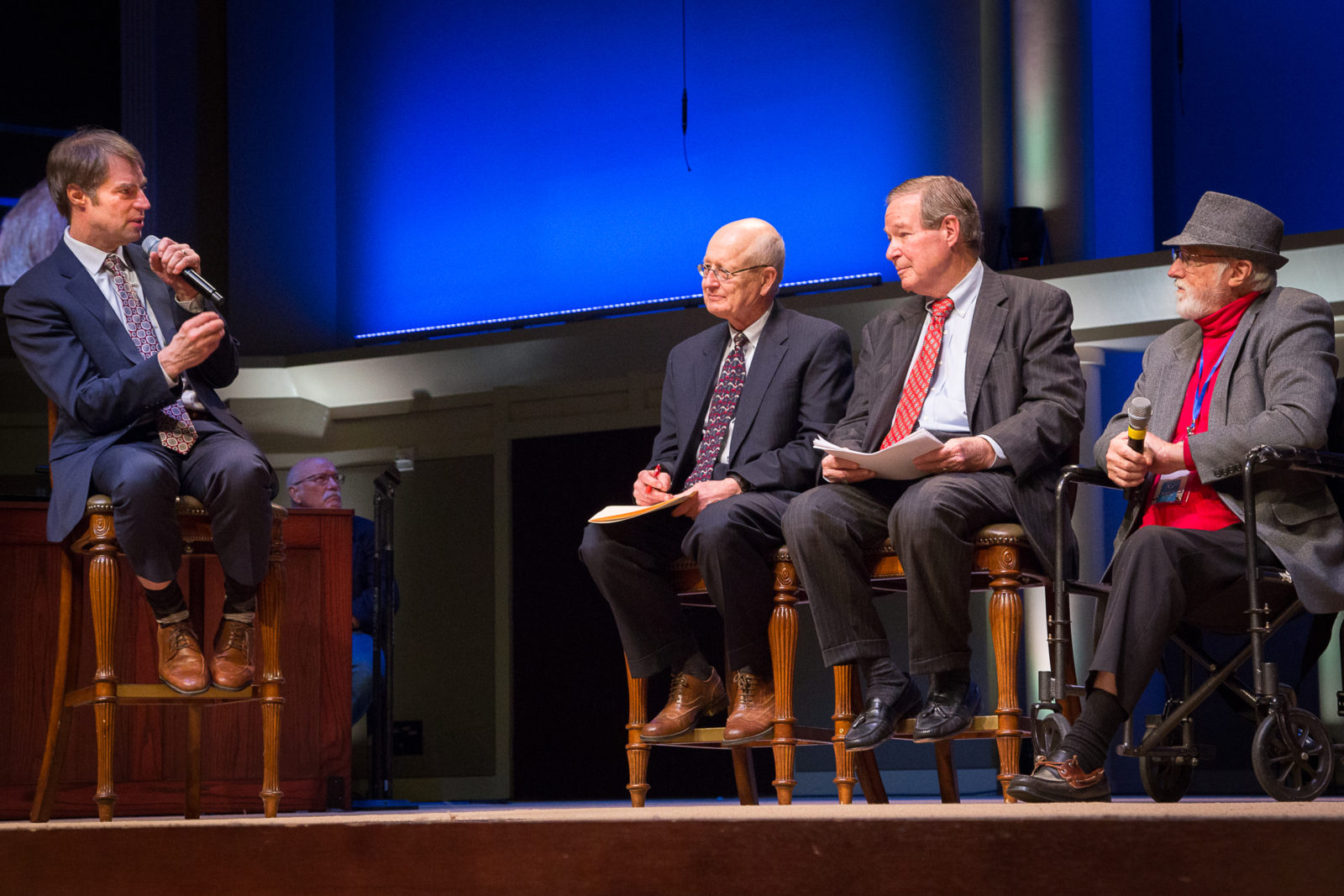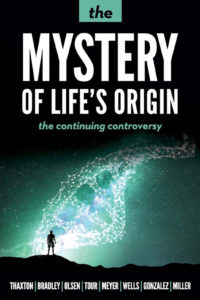Mystery of Life’s Origin Authors Reunite
There was a wonderful turnout this past Saturday for the 2020 Dallas Conference on Science & Faith, with more than 1,400 in attendance. A highlight was the reunion of the three scientists who sparked the modern intelligent design revolution. That was in 1984 with the publication of The Mystery of Life’s Origin. The pioneering authors, biochemist Charles Thaxton, materials scientist Walter Bradley, and geochemist Roger Olsen, are pictured above (from right to left, Thaxton, Bradley, Olsen), being interviewed by Stephen Meyer about the paradox-filled intellectual world of origin-of-life researchers.
To Carry On a Legacy
The audience, which had already nearly filled the parking lot 45 minutes before the event began, were rewarded with a very entertaining conversation celebrating a new book from Discovery Institute Press. Mystery of Life’s Origin was republished today in a very substantially expanded, updated version that brings the origin-of-life controversy up to date, with new contributions by Meyer, biologist Jonathan Wells, chemist James Tour, physicist Brian Miller, and astronomer Guillermo Gonzalez, and a historical introduction by Evolution News editor David Klinghoffer. The new book is graced by an updated title, The Mystery of Life’s Origin: The Continuing Controversy.
Dr. Meyer is of course one of the foremost scholars and ID proponents who have carried on the intellectual legacy of Thaxton and his colleagues.

A presentation by Dr. Bradley was introduced appropriately by the director of Discovery Institute’s Walter Bradley Center for Natural & Artificial Intelligence, Robert J. Marks. His comments included the observation that as a theist, Dr. Marks is grateful to have all possible scientific explanations of the natural world, including intelligent design, available to him whereas atheists and materialists have that option arbitrarily foreclosed to them.
A Tour of Intelligent Design
The Dallas Conference was thus a tour of the theory of intelligent design from its beginnings, to today, and looking forward to the next frontier, which Stephen Meyer discussed: his forthcoming book, The Return of the God Hypothesis. The book shows that theism is the one view of reality that is consistent with the relevant scientific evidence.

Political scientist and Discovery Institute Vice President John West illuminated the cultural and worldview impact of Darwinism, with its explanations of life’s wonders all rooted in suffering and death. Try fashioning a life-affirming culture from that. Michael Behe (above) discussed irreducible complexity and the provocative argument of his new book, Darwin Devolves, showing that “adaptive” evolution favored by natural selection usually involves squandering genetic information for short-term gains. In a Q&A, Dr. Behe fielded a controversial question from an audience member. The gentleman demanded to know about Behe’s plans for his facial hair. Is he going to allow his beard to really grow out, or not!?

Finally, protein chemist Douglas Axe (above) demonstrated why any modestly sophisticated system showing functional coherence sets off our design intuitions, and rightfully so. These are indicators of extremely specified, low-probability events, which justify the inference to design.
In every way, this conference was an even bigger success than our 2019 Dallas Conference. We are building on many strengths, and looking forward to 2021!
Photo credit: Chris Morgan, Jonathan Bartlett, and Pam Bailey.

